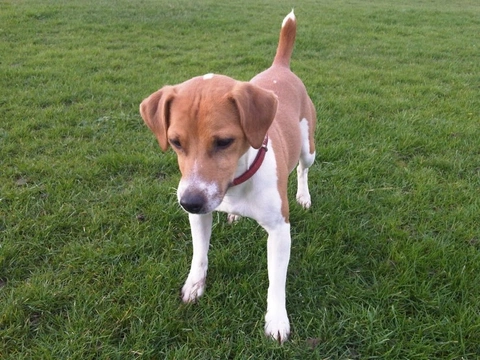
What is a Plummer terrier?
There are a wide range of different dogs that fall within the terrier grouping, and this large and diverse group encompasses a variety of dogs of different shapes and sizes that hail from all over the world. While most of us could probably name several different terrier breeds with ease, there are also a number of less well known and common terrier types that many of us will never have seen in the flesh and in some cases, won’t even have heard of.
One of these is the Plummer terrier – a small terrier type of dog that has yet to gain formal recognition with the UK Kennel Club as a registered pedigree breed. Plummer terriers are very smart dogs that also have bags of energy, which means that they are versatile enough to suit a wide range of different types of homes and owners, but they can also be a handful to manage.
If you are wondering what a Plummer terrier is or if a Plummer might be a good choice of dog for your next pet, this article will explain in more detail the core traits and temperaments of the Plummer terrier. Read on to learn more.
What is a Plummer terrier?
The Plummer terrier is a small, hardy and plucky dog of the terrier type, which was originally developed from working strains of Jack Russell terriers along with input from other breeds including the beagle. Development of this dog type began in the 1960s, and the Plummer is named after the man who formed the foundations of today’s Plummer – Dr. David Brian Plummer.
Plummer himself was a strong proponent of working terriers, and ultimately gained recognition as a leading authority of hunting with dogs such as terriers and sighthounds.
The dog that we today call the Plummer terrier is bold, high energy, very intelligent, and has incredible tenacity as well as a very strong prey drive.
Is the Plummer terrier a pedigree dog breed?
The Plummer terrier is not recognised by the Kennel Club in the UK as a pedigree dog breed in its own right. This is because Plummers are essentially mixed breed dogs produced from subsequent generations of outcrossing and selective breeding from the gene pools of several dog breeds, rather from within the gene pool of a single registered breed.
None of the other main international Kennel Club organisations recognise the Plummer terrier as a breed in its own right either, which means that there is no registry, breed standard or formal oversight for dogs of this type.
The Plummer terrier appearance
Plummer terriers can be quite variable in appearance, and because there is no breed standard in place for them, there is no formal norm or Kennel Club approved description of what the ideal Plummer might look like. However, Plummer himself introduced a breed standard in the year 2,000, which Plummer breeders aspire to reproduce within their own breed lines.
Plummers are small dogs, weighing between 5.5-7.5kg on average, and standing between 28-36cm tall at the withers.
They have a petite and proportionate build that is sturdy but not overly heavy, and their expression is lively, alert and watchful. They are very supple and flexible dogs that are quick on their feet and capable of high precision even when running at speed, and they have a generally well balanced, workmanlike appearance as you would expect from a smart, high-energy small dog of the working terrier type.
The Plummer terrier coat is short and lies close to the skin, being highly water resistant and designed to protect the dog from harsh weather and scratches and injuries from working in undergrowth.
The Plummer terrier temperament
Plummer terriers are dogs that really need a goal and a purpose, and providing them with a job to do is key to keeping a Plummer fulfilled and happy. Originally bred as working dogs, all of the core traits that make the Plummer a tenacious hunter remain strong within dogs of this type today, and they are intelligent and analytical animals that can think on their feet, and that rarely give up on a challenge.
They are highly active and benefit from plenty of interesting, engaging exercise, as well as having something to concentrate their mental abilities on too. They also have high levels of endurance and can be very persistent and stubborn when they set their minds on something!
Because of their naturally high prey drives, Plummers need to be carefully trained and managed when out on walks to ensure that they don’t pose a threat to wildlife or domestic cats. They also tend to get easily bored, and can become destructive if they do not received enough entertainment and stimulation.
In terms of their training, Plummers benefit from training and handling by someone who is experienced in owning and working with high-energy terrier breeds and particularly, working dogs, and that is able to provide adaptive, forward-thinking training that keeps the dog engaged and working and prevents boredom.
For this reason, Plummer terriers are generally considered to be a good pick for experienced dog owners, and they can be a handful for first-time owners. However, Plummers are also very entertaining, engaging and fun-loving dogs that are good company, and that will be able to match you step for step on even the longest walks.



